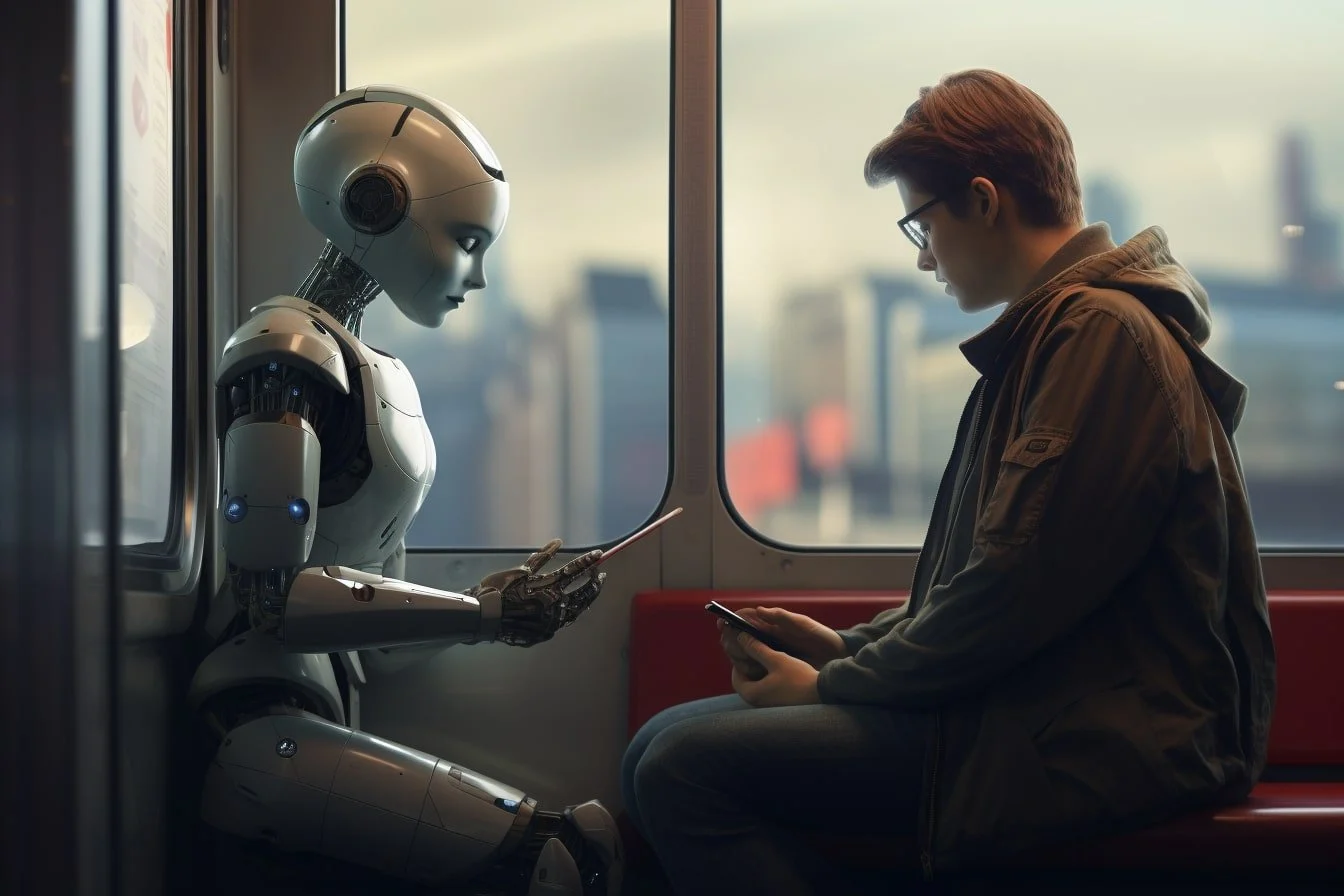By: Aurora He
Companion robots enhanced with artificial intelligence may one day help alleviate the loneliness epidemic, suggests a new report from researchers at Auckland, Duke, and Cornell Universities.
According to the report, the incorporation of Artificial intelligence in robots has recently taken significant improvement, enabling them to not only complete complex tasks but also connect with human emotions on a new level. These robots have the potential to become great companions in the future, especially for the elderly and other individuals who face social challenges.
Dr. Emily Roberts, lead researcher on the project, highlighted the remarkable findings: “Our AI-powered robots have been designed with a keen focus on emotional intelligence. Through deep learning algorithms, they can interpret human emotions, respond with empathy, and even adapt their behavior based on individual personalities.”
Given the alarming statistics from the Survey Center on American Life, it becomes evident that loneliness has become a significant issue. The number of Americans with no close friends has quadrupled since 1990, and the impact is immense, potentially affecting one-third of the world’s population. Loneliness is a serious social issue and could potentially affect one-third of the world’s population. At the same time, loneliness also comes with serious health issues, such as an increased risk of mental illness, obesity, dementia, and early death. These problems should be paid attention to. Given that the support from traditional extended family is becoming less frequent, a more innovative solution is urgently needed.
One of the most remarkable cases the report featured is the study of CompanionBot, an AI Robot introduced to a group of elderlies living in an assisted living facility. The CompanionBot and the group spent six months living together. During the six months, the CompanionBot was able to engage the group by having conversations, playing games, and providing reminders for medication and appointments.
The results are encouraging. The group reported an increased feeling of happiness and contentment during the six months, while the staff noticed a significant decrease in loneliness and social isolation in the group. The profound impact on the mental health and emotions of the group was a result of the CompanionBot’s capability to recall personal details about them and engage in meaningful interactions.
In addition to CompanionBot, there are numerous other robots that can be excellent companions. For example, Aibo is a robot created to resemble a dog and serve as a robotic pet companion that combines advanced robotics, artificial intelligence, and sensors to deliver a lifelike and interactive experience for its users. Many users have expressed appreciation for its lifelike movements and behaviors, which create an authentic pet-like feel. The robot’s ability to convey emotions through its movements, sounds, and expressive eyes has gained praise.
At the same time, it’s essential to recognize that companionship can extend beyond human figures, as animal and pet-shaped robots can also fulfill this role admirably. These robotic companions offer valuable assistance and companionship, providing a unique and fulfilling bond to their owners.
While the result of the idea of AI robots serving as companions is very promising, the report also emphasizes responsibly using these technologies. Ethical considerations, data privacy, and maintaining a human-centric approach are critical to AI-human interactions.
Dr. Roberts concluded, “As we move forward, it is essential to strike a balance between leveraging technology to address societal issues and preserving the human touch that makes us uniquely compassionate beings.”
While the path ahead may still present challenges, the Duke report offers an optimistic glimpse into a future where AI robots might be the solution to cure loneliness, bringing joy and companionship to those who need it most. As we look forward to a world where technology exists along with human emotions, the potential for AI robots to cure loneliness seems brighter than ever.











